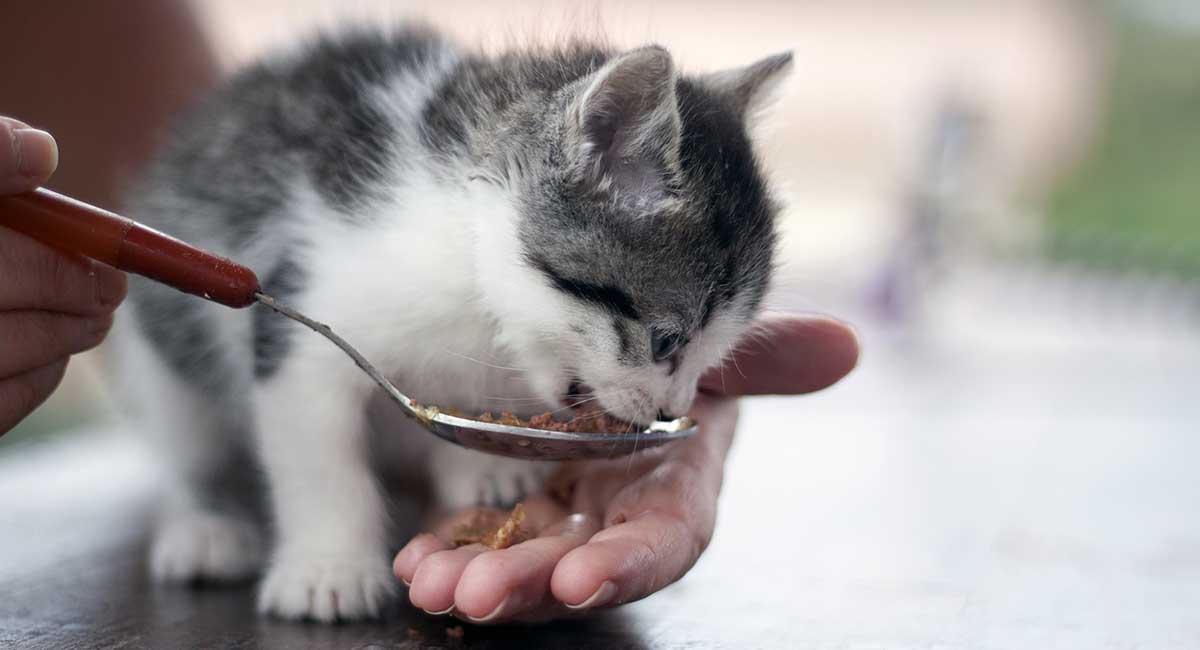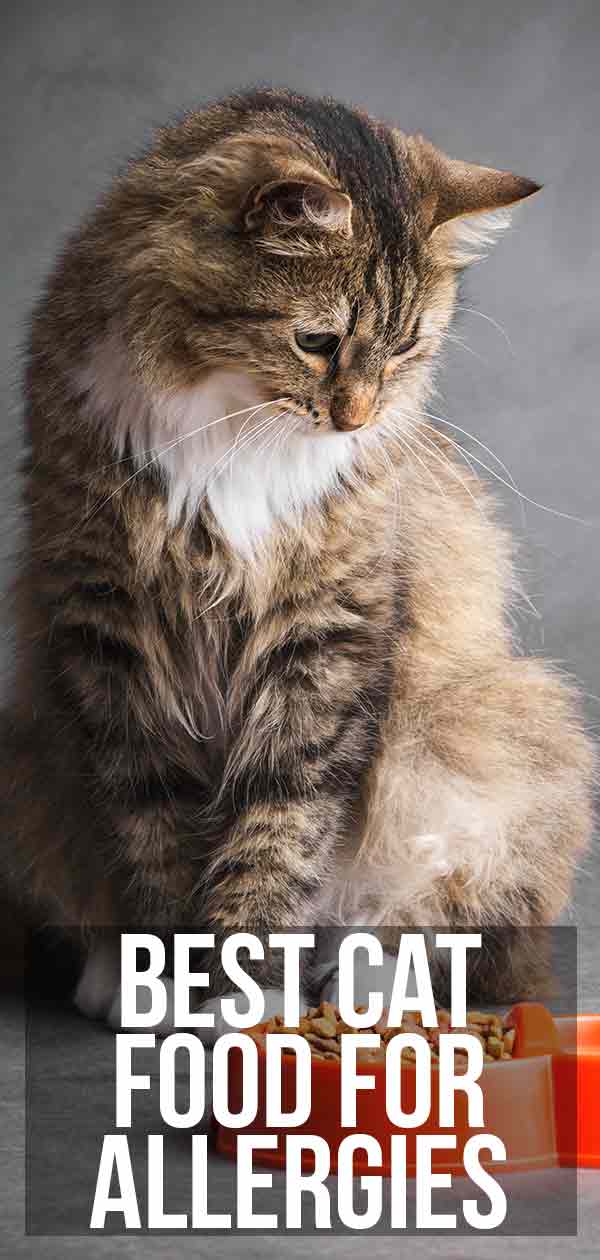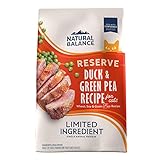Are you on the hunt for the best cat food for allergies?
It’s never fun when your cat is prone to food sensitivities. Especially when those sensitivities make him feel yucky!
But what if you are worried that the food you are offering him is making his allergies worse?
Today’s article covers everything you should know about your cat and his food allergies.
We’ll talk about which foods are best for cats who suffer from allergies, and how you can keep your cat feeling happy and healthy for years to come.
But before we help you find the best cat food for cats with allergies, let’s go over some of the basic nutritional needs for cats.
All of these products were carefully and independently selected by The Happy Cat Site team. If you decide to make a purchase from one of the links marked by an asterisk, we may earn a small commission on that sale. This is at no extra cost to you.
What Are The Basic Nutritional Needs For Cats?
When looking for the best cat food for allergies, make sure you are not cutting out any important nutrients your cat needs to thrive.
Did you know that your little domesticated house cat is a pretty close relative to wild felines like tigers, lions, and leopards?
And seeing as he is so closely related, it may come as no surprise that your cat is what is known as an obligate carnivore.
What does that mean?
Well, an obligate carnivore is an animal that requires animal proteins in their diet to survive. This means that your cat must have meat, and lots of it, to live his best life.
Here is what your cat needs to thrive.
Animal Protein
That’s right! Like we mentioned above, cats must have a diet rich in animal protein in order to live and thrive.
A diet that is rich in healthy animal protein boosts your cat’s immune system. It also helps regulate his Ph levels, endorses healthy muscle and brain development, and supplies your cat with plenty of energy.
Fatty Acids
Yes, cats need lots of proteins, but they also need plenty of healthy fats.
Fatty acids like omega-3 oils, omega-6 oils, and DHA can help:
- boost your cat’s immune system
- regulate his energy
- boost his metabolism
- keep his skin and coat looking gorgeous.
Fatty acids can also help to promote your cat’s vision. This is why foods that contain sardines, liver, and rabbit proteins are a wonderful choice.
These are fatty meats that produce lots of essential oils your cat needs to stay happy and healthy.
But what else does your cat need?
Water
Along with protein and fat, your cat should also have a diet rich in minerals, vitamins, and water.
Wait. Did we say water?
Yes, we did.
That’s because cats actually have a pretty low thirst drive, which means they naturally may not know when it is time for them to take a sip of water.
Many cats can even become dehydrated and not realize it! This is one of the reasons it is so important to make sure your cat has moisture-rich foods.
Of course, it is still important to leave out fresh water for your cat every day.
But what about carbohydrates?
There is some debate over whether or not cats really need carbs.
The consensus between experts seems to be that cats do best on a grain-free diets, especially if you have a cat who is prone to allergies and food sensitivities.
Ready to learn more about the best cat food for allergies? Then keep reading!
What Are Some Signs My Cat Is Suffering From Food Allergies?
Before you invest in the best cat food for allergies, you should make sure your cat is actually suffering from food allergies in the first place.
Pet allergies present themselves differently in animals than they do in humans, and there is a big difference between a sensitive stomach and a food allergy when it comes to cats.
For example, if your cat is suffering from gastrointestinal issues like constipation, gas, diarrhea, or loose stool, then he may simply have a sensitive stomach.
And while this is still cause to speak to your cat’s vet and change his diet, it may not necessarily mean he is allergic to his food.
Other signs your cat may be suffering from food allergies are
- Constant itching or scratching
- Excessive oil on skin and coat
- Dry and flaky skin or coat
- An odor to the skin or coat
- A high buildup of dirt, debris, and yeast in ears
- Chronic ear infections
- Constant licking of paws
- Lethargy or listlessness
- Gastrointestinal upset
What Causes Food Allergies In Cats?
Most of the common causes of food allergies in cats are due to ingredients in their food.
Commercial brand cat foods, low-quality cat foods, and even some high-quality cat foods can contain common ingredients that cause food allergies.
These ingredients include:
- Beef
- Eggs
- Lamb
- Corn
- Rice
- Potato
- Gluten
- Dairy
- Dyes
- Preservatives
- Artificial flavors
Due to the list above, it is easy to see why determining exactly what your cat is allergic to in his diet could be difficult.
Many cat owners with cats who suffer from food allergies opt to put their cat on a limited ingredient diet, also known as a L.I.D.
The idea behind a limited ingredient diet is that it dwindles down the ingredients in your cat’s diet to things he would not normally eat, without losing any important nutrients your cat needs.
For example, instead of offering your cat a commercial cat food with chicken as the main protein, you would offer your cat a L.I.D. cat food with rabbit or venison.
How Can Changing My Cat’s Diet Help Reduce His Allergy Symptoms?
A cat’s diet plays a major role in his health. While there are a number of reasons your cat may be suffering from allergies, food allergies are a very common cause to allergies in cats.
When looking for the best cat food for allergies, make sure you are still offering your cat high-quality cat food that is full of protein, fatty acids, vitamins, minerals, and other ingredients essential to his dietary needs.
Of course, we always recommend that you consult with your veterinarian before opting to change your cat’s diet, especially if he is exhibiting symptoms of food allergies.
Is There Such A Thing As Hypoallergenic Cat Food?
When looking for the best cat food for allergies, you may stumble across the term “best hypoallergenic cat food.”
It is important to note that there is really no such thing as hypoallergenic cat food or hypoallergenic diets for cats.
All cat food could contain allergy-inducing ingredients depending on your cat’s specific sensitivities and allergies.
So, to give your cat an allergy free cat food, you must first find out the cause of his allergy. This could take some time.
Cat food allergies are quite common.
Many experts recommend elimination diets in which you slowly eliminate certain ingredients until you find out which one is causing your cat’s allergic reactions.
You can also try the limited ingredient diet, although there is no guarantee this will work in eradicating your cat’s allergy symptoms.
But that doesn’t mean it isn’t worth a shot.
Let’s talk about the best cat food for allergies.
Dry Cat Food Or Wet Cat Food – Which Is Best For My Allergy-Prone Cat?
As we mentioned above, cats are low-thirst animals and can become quite dehydrated before realizing they should get some water in their system.
This is because cats naturally get most of their water intake from their meals.
This is just one of the reasons that many cat owners and feline enthusiasts recommend wet or canned cat foods.
And while dry cat food is obviously easier to store and use, wet cat food only takes a few seconds longer to prepare and is better for certain health issues like urinary tract issues, hydration, healthy weight management, and more.
Not to mention that wet cat food has more protein and fewer carbs, which is always a plus when talking about cat nutrition.
If you do want to continue feeding dry cat food, you may opt to use meal toppers or other meal supplements that can help him get the hydration and nutrition he needs.
Best Dry Cat Food For Allergies
While we certainly favor wet cat food over dry cat food, there are some healthy options out there for cats who suffer from food allergies.
One of our favorite dry cat food options is Instinct Limited Ingredient Diet Grain-Free Recipe Natural Cat Food and Toppers*(paid link).
You can use this to mix in or top wet cat food or you can feed it to him as his primary meal.
Either way, this is a wonderful, limited ingredient diet option for cats who suffer from allergies.
We also recommend Natural Balance Limited Ingredient Dry Cat Food Green Pea & Duck*(paid link).
As we discussed above, protein-rich meats like duck are an excellent source of fatty acids and are just exotic enough that your cat may not have developed an allergy to it.
And last on our list of dry cat food for the best cat food for allergies, check out Blue Buffalo Basics Limited Ingredient Diet Grain-Free, Natural Indoor Adult Dry Cat Food, Fish and Potato*(paid link).
This limited ingredient diet cat food is grain-free and all natural, but it is best for the indoor cats and should be mixed with wet cat food or supplemented to keep your cat hydrated and healthy.
Are you more interested in wet cat foods for cats with allergies? Then see our list below!
Best Wet Cat Food For Allergies
Yes, it’s true. Many cat owners and feline experts recommend steering clear of feeding your cat dry cat food on its own.
That is why we have listed these wonderful limited ingredient wet cat foods for cats with allergies.
One of the best cat food for allergies wet cat food products on the list is Instinct Limited Ingredient Diet Grain-Free Recipe Natural Wet Canned Cat Food(paid link)*.
Grain-free, limited ingredient, and made with turkey protein, your allergy-suffering cat may have just found his favorite new meal.
Still not sure?
Then take a look at Blue Buffalo Basics Limited Ingredient Diet Adult Indoor Grain Free Duck and Potato Wet Cat Food*(paid link).
Again, this wet cat food is a limited ingredient diet cat food made with duck.
We are also fans of Natural Balance Limited Ingredient Diets Venison and Green Pea Formula Wet Cat Food, which is made with venison and green peas(paid link)*.
Venison is seen less often in cat food and might be something your cat hasn’t tried yet and therefore may not be allergic to.
Best Cat Food For Skin Allergies
If your cat is constantly itching, scratching, or showing signs of dandruff or excessively oily skin, then he may be suffering from skin allergies due to food intolerance.
To help your cat’s allergies while improving his coat, find cat food for skin allergies.
Make sure you steer clear of cat foods high in grains and additives and look for protein-rich foods with lots of fatty acids like omega-3 and omega-6 oils.
As we mentioned above, these fatty acids help to promote healthy skin and coat in your cat and can keep pesky skin allergies under control.
Check out NUTRO Perfect Portions Grain Free Pate Wet Cat Food With Salmon and Tuna*(paid link). This cat food is made with fish, which is a huge source of omega-3 fatty acids.
We also suggest this Instinct Limited Ingredient Diet Grain-Free Recipe Natural Cat Food & Toppers with Real Rabbit Meat*(paid link).
Rabbit is another source of protein that is rich in fatty acids and helps to promote a healthy skin and coat.
And, like rabbit meat, duck meat is rich in healthy fatty acids. This is why we recommend Natural Balance Limited Ingredient Dry Cat Food Green Pea and Duck*(paid link) for your cat with skin allergies.
How Else Can I Help My Allergy-Prone Cat?
Cat allergies are quite common, and cat food allergies are one of the main reasons that cats suffer from food intolerance.
To help your cat with his food allergies, we suggest doing plenty of research and consulting with a veterinarian before you go about changing your cat’s diet.
We hope this article has helped you navigate how to best feed your sensitive cat. May all your cat’s nine lives be filled with happiness, health, and yummy foods!
Leave us a comment to let us know how your food search goes!
Affiliate link disclosure: Links in this article marked with an * are affiliate links, and we may receive a small commission if you purchase these products. However, we selected them for inclusion independently, and all of the views expressed in this article are our own.
References
Gartner, MC, Powell, DM and Weiss, “Personality Structure in the Domestic Cat (Felis Silvestris Catus), Scottish Wildcat, (Felis Silvestris Grampia), Clouded Leopard (Neofelis Nebulosa), Snow Leopard (Panthera Uncia), and African Lion (Panthera Leo),” the Edinburgh Research Explorer, The University of Edinburgh
Leistra, M; Willemse, T, “Double-Blind Evaluation of Two Commercial Hypoallergenic Diets in Cats with Adverse Food Reactions,” Journal of Feline Medicine and Surgery
White, SD; Sequoia, D, “Food Hypersensitivity in Cats: 14 Cases,” Europe PMC Plus
Chan, D, “The Inappetent Hospitalised Cat: Clinical Approach to Maximising Nutritional Support,” Journal of Feline Medicine and Surgery
Morris, J; Rogers, Q, “Basis for Some of the Nutritional Peculiarities of the Cat,” Journal of Small Animal Practice
Bradshaw, J, et al., “Food Selection by the Domestic Cat, an Obligate Carnivore,” Comparative Biochemistry and Physiology Part A: Physiology
Randi, E; Ragni, B, “Genetic Variability and Biochemical Systematics of Domestic and Wild Cat Populations (Felis Silvestris: Felidae),” Journal of Mammalogy










Do you have an opinion on using probiotics on cats? Is there a connection to preventing food reactions or reversing allergies?
Hi Bee, We have a guide to Probiotics For Cats here: https://www.thehappycatsite.com/probiotics-for-cats/ Hope you find it helpful!
My cat is allergic to all kind of poultries, beef, fish. She got rabbit but it looks like she got allergic for that as well. She got goat and lamb, not really work. Now she eats wild meats, it looks fine. She can not get any grain and honestly I dont like it. So I am looking for a dry cat food for her which contains any other kind of protein I wrote. is there any on the market? It would be really helpful if you knew it. She loves dry food bit she hasnt been eating it for years. Thanks
I am confused. You list Potato as an ingredient that causes allergy and suggest “Indoor duck and potato entree” wet food.